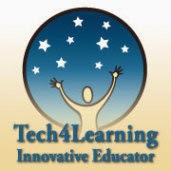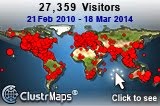
Recently I attended Educon2.2. It was difficult to choose which sessions to attend as there were so many high-quality offerings. Two of the conversations I chose were Taking.Play.Seriously with Brian C. Smith and Thinking Creatively-Inventing the Possible with Linda Nitsche. Both of these wonderful and thought-provoking sessions were right up my alley as an educator, and I was excited to be able to discuss my personal passion in teaching with like-minded educators.
It seems that the educational value of play is beginning to gain greater respect in wider circles. I had to chuckle when, in one of the sessions, it was suggested that play be considered a "new literacy." To me, that is like calling breathing a new literacy. I believe that children are instinctively amazing learners, and that play and creative exploration are vital components of growth and development.
The current trend is to start academic learning at an earlier age. Preschool is what kindergarten once was, and kindergarten is what first grade used to be. Parents employ private tutors to teach 3 and 4 year olds how to read. The paradox is that in order to grow into our full potential, we must be allowed to develop our brains at a natural pace. Happily, research is catching up to what many of us who work with children have long understood. Children learn through play. Play is vital and necessary. Here is the catch- the play must be unstructured. Children learn through creating their own play. Why is it so scary for adults to respect the inherent intelligence and wholeness of children?
It seems that in our fear of falling behind and our frenzy to compete with other countries that are supposedly surpassing us in industry and math and science test scores, we have taken a path that, ultimately, makes little sense.
Problem: Kids aren't scoring high enough on standardized tests.
Usual Solutions: Teach to the test, more tests, more academics, longer school days, longer school years.
The way I see it, both the problem and the solutions need to be revisited and revised. The problems facing us as human beings are extremely complex. We must have a deep understanding of the world in which we live, the mindset to approach problems with creativity, a spirit of innovation and an outstanding ability to connect, collaborate and care about others, in order to go forward.
The human brain is the greatest technology ever known. Human beings created artificial intelligence to reflect our own intelligence. We are the machine. By working creatively with technology to explore and solve complex problems, we develop neural pathways and increase our abilities to think, problem-solve, create and understand our world. The way we use computer applications and troubleshoot equipment is, like learning, non-linear and open-ended. There are multiple approaches that will work. What is important is the ability to problem solve through trial and error as well as knowing where to seek further assistance when trial and error isn't working. When a process is used enough times it will be naturally committed to memory, but that is much less important than the confidence that comes through striving, frustration and success. That is learning. Today, more than ever before in history, we can not be satisfied with a standardized test score as the main indicator of a well-educated person.
image from BrianCSmith's flickr. Lots more great quotes there, too, from the Strong Museum of Play.







